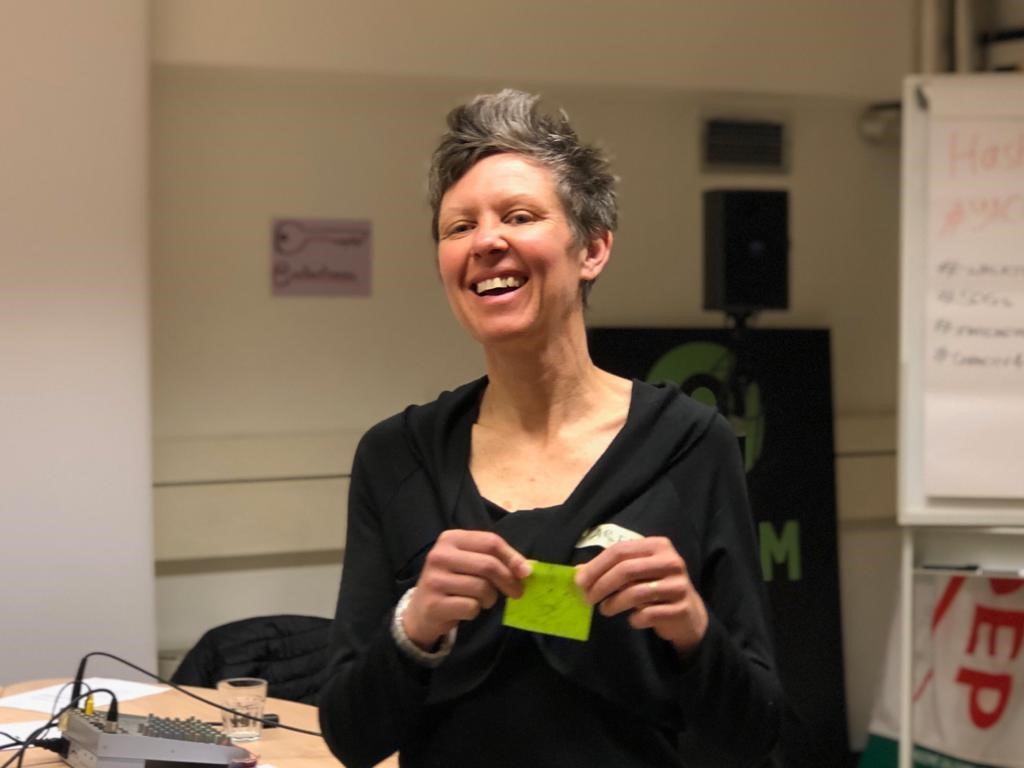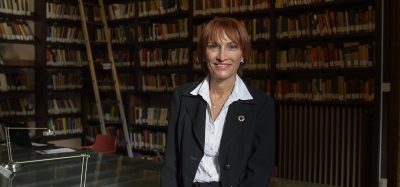Oxfam is an international confederation of 20 non-governmental organizations working with partners in over 90 countries to end the injustices that cause poverty. Areta Sobieraj, head of education, Oxfam Italia, tells Future why diversity and inclusion must be essential for this – and any – organization
What is your definition of a diverse and inclusive workforce?
Areta Sobieraj: A workplace that encourages, safeguards, and respects the presence of differences in all positions – especially those that remain underrepresented or marginalized – is a diverse and inclusive workforce. Those differences can be gender, race, religion, sexual orientation, ethnicity, nationality, social economic status, or it could be connected to language, disability, age, or even political perspective.
Why should diversity be a key component in a company’s environmental, social, and corporate governance (ESG) program?
Areta Sobieraj: We live in a globalized, hyper-interconnected and very fast-moving world. But it’s also a world that has clear signs of fragility in terms of inequalities. And there is no single winner or loser because we’re all interconnected. There should be a collective responsibility, as the UN’s Sustainable Development Goals tells us, if we want to achieve the 17 goals of sustainable development and leave no-one behind. We all have a role to play, and that includes companies. Today, the private sector, as well as its customers, are much more conscious of how the world works. We are more informed and tend to ask for a fairer and more sustainable world, where inequalities diminish, and justice prevails.
Consumers are increasingly demanding the corporate sector is more accountable towards people and the planet. It’s therefore not possible to talk about social governance programs without addressing diversity and inclusion.
“We live in a globalized, hyper-interconnected and very fast-moving world. But it’s also a world that has clear signs of fragility in terms of inequalities. And there is no single winner or loser because we’re all interconnected”
Areta Sobieraj
Why is being diverse and inclusive fundamentally the right thing to do?
Areta Sobieraj: If your workforce is truly valued and respected, working without fear or discomfort, then they will probably feel – and work – much better. When employees thrive professionally, so too will the company. Communicating a business’s social responsibility can yield better results attracting more conscious and responsible consumers. But this must be structured with transparency and accountability.
Conversely, so-called ‘woke washing’ can have a massively negative impact on a company, because many customers now have some big demands of how a company should treat people.
What is woke washing? Why does it need addressing?
Areta Sobieraj: It’s like greenwashing but connected to social responsibility. It’s when a company says that it’s socially conscious towards its workforce or a given social issue, but its actions don’t correspond. This has happened to a number of companies and there has been a backlash because customers generally are not happy when you say you’re doing something and you’re doing quite the opposite.
How does Oxfam promote and engender a diverse workplace?
Areta Sobieraj: In recent years, Oxfam has made a conscious commitment to diversity and inclusion. One of the significant changes it made was to move the confederation’s headquarters from Oxford, UK, to Nairobi, Kenya. This was a rebalancing of power on a global level. It also means hiring local staff in all countries where Oxfam works, especially in the Global South, rather continuing to hire expats.
Oxfam also committed to a recruitment policy that explicitly welcomes the most under-represented employees in societies, such as women or people with disabilities. Two of the last three executive directors have been women, while two have also been non-white. These are very clear signals that the company wants to change in terms of diversity and inclusion.
What other initiatives has Oxfam put in place?
Areta Sobieraj: Oxfam also invested heavily in changing its work culture. Now, there is a people and culture team that includes a diversity and inclusion working group. This group asked staff, anonymously, what diversity meant to them. This gave us a lot of useful information to set up a strategy with action points.
Secondly, Oxfam International’s leadership team underwent a process of reflection with external experts, who invited them to think about how safe and welcoming the organization was. It’s very important to get an external voice to get that help and support. Consequently, the team revised its internal policies, such as recruitment, HR, sales, and procurement, accordingly.
Finally, a space has been set up whereby any staff member in any country can safely meet, to talk about issues regarding misconduct in terms of diversity and inclusion. This is another important step, but there’s still a long way to go.
How have these initiatives proven to be a success?
Areta Sobieraj: The staff survey has showed us how happy, safe, and comfortable employees feel at work, for example, whether they identify as being part of a diverse group or other useful information. Oxfam is going in the right direction in terms of valuing and respecting staff and the results provide us with clear indicators of where we need to do more. Giving staff the possibility to express how they’re feeling in terms of diversity and inclusion is a great way of monitoring their well-being.
What is your view on an enforced diversity on boards and senior management teams?
Areta Sobieraj: Companies need to self-reflect, address their employees’ needs and find ways to implement change where it’s necessary. Small steps can be taken but they need to be coherent. Having a minimum percentage of female or non-white representation on boards could be a small step if that company has identified an action plan and agrees in a democratic, participatory process, that’s in line with how it wants to address diversity and inclusion. What’s important is that a company’s leadership is intentional, for it to influence meaningful change in mindsets and to build that deeper trust.
Are you confident that, in the future, companies will become more diverse?
Areta Sobieraj: I am positive, so long as companies can listen to and respect their employees – welcoming diversity and recognizing it really is an added value. Change can happen, but a company’s social consciousness needs to be grounded in coherence with its values. It’s a big learning journey for many companies. The ride isn’t always very smooth. But if companies are courageous enough to get the ball rolling by coming out of our comfort zones and asking those difficult questions, they can achieve true diversity.
We all need to think about how we would like to be treated at work and what would enhance our well-being, first as humans, but secondly, as employees.
“I am positive, so long as companies can listen to and respect their employees – welcoming diversity and recognizing it really is an added value. Change can happen, but a company’s social consciousness needs to be grounded in coherence with its values”
Areta Sobieraj







